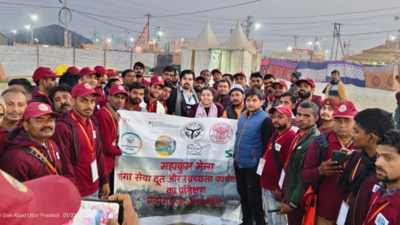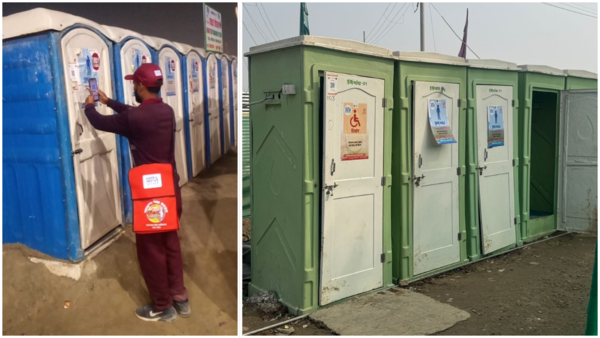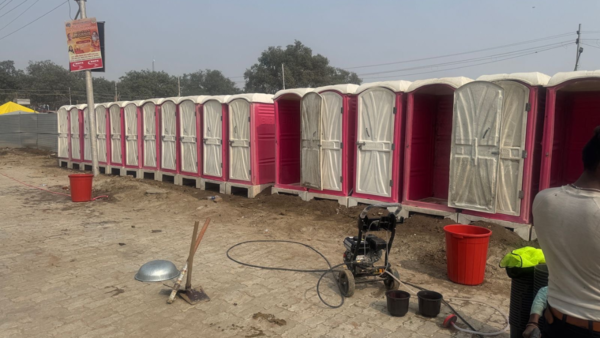
With focus on cleanliness and public awareness, Prayagraj hosts Maha Kumbh 2025
Prayagraj
is currently hosting the largest human gathering event in the world,
Maha kumbh 2025
, on the banks of the Sangam, the sacred confluence of the Ganga, Yamuna and the mythical Saraswati rivers.
The festival, held at sites where drops of nectar from the Amrit Kumbh were believed to have fallen during ‘Samudra Manthan’, is considered one of the holiest Hindu gatherings. This edition is particularly significant as it marks the completion of 12 Kumbh Mela cycles and is being held after a gap of 144 years.
In anticipation of millions of devotees expected to take a holy dip in the Sangam, extensive efforts are being made to maintain cleanliness and improve water quality.

The State
Clean Ganga Mission
is working on purifying sewage and wastewater flowing into the Ganga and Yamuna. Of the 81 drains that discharge 293.59 MLD of wastewater into these rivers, 54 drains (231.40 MLD) are being diverted to Sewage Treatment Plants (STPs).
Additionally, 22 drains (60.80 MLD) are undergoing onsite purification, while five stormwater drains require no treatment. The Uttar Pradesh Pollution Control Board is conducting daily water quality tests in compliance with National Green Tribunal guidelines.

Currently, 10 STPs are operational in Prayagraj, ensuring purification as per 2017 standards set by the ministry of environment, forest and climate change.
As part of the
Namami Gange programme
, the irrigation department has constructed seven new ghats at Dashashwamedh, Kila, Maukayan, Gyan Ganga Ashram, Saraswati, Maheva and Rasulabad.
To manage sanitation during Mahakumbh, authorities have installed 12,000 fibre-reinforced toilets, 16,100 steel toilets, and 20,000 urinals across the fairgrounds. 20,000 dustbins have also been placed for waste collection and disposal. Officials are ensuring the regular maintenance and timely disposal of waste.
A major public awareness initiative, the ‘Paint My City’ campaign, has seen 50,000 square feet of walls painted with murals depicting Ganga Avtaran, Ganga Aarti, historical temples, ghats, biodiversity, and conservation messages.
An exhibition at the fairgrounds showcases sewage treatment models from Bareilly, Prayagraj, Chunar, and Banaras, a miniature of Dashashwamedh Ghat, and a digital gallery on the Namami Gange programme.
To promote cleanliness, 1,500 Gangadoots (Ganga Volunteers) have been deployed to monitor sanitation using a mobile app. Street plays, rallies, and awareness campaigns are also being organized by the Prayagraj District Ganga Committee to engage the public in maintaining hygiene and river conservation.
.png)
 German (DE)
German (DE)  English (US)
English (US)  Spanish (ES)
Spanish (ES)  French (FR)
French (FR)  Hindi (IN)
Hindi (IN)  Italian (IT)
Italian (IT)  Russian (RU)
Russian (RU)  3 hours ago
2
3 hours ago
2








Comments